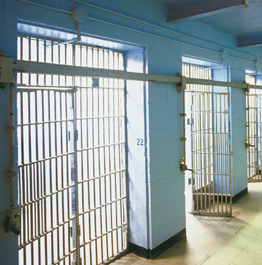In the three months or so since mid-March lockdown, Prof Martin Gill has run more than two dozen webinars, under the banner of the OSPAs. Arguably the outstanding webinar was yesterday, when two convicted offenders, identified to the audience only as Andy and Tony, spoke of their crimes and – a staple of Martin Gill’s work as a criminologist – what the offenders made of security measures that they had to get around.
The men were asked, would they have gone – if they were starting out again now – into cybercrime, rather than the physical crimes they did do, such as shoplifting, breaking into cars, burglary and robbery? Definitely, Tony said. “Obviously, you have got to know a lot about all that; that’s where the big rewards are. It’s a faceless crime.” Andy said: “I’m a bit of a technophobe,” and admitted that he didn’t like to do online banking. If younger, he said he too would have seen the attraction of cybercrime. Like Tony, he described cybercrime as faceless: “There no such thing as a victimless crime, but some are more victimless than others.”
The next question, seeking to learn about crime prevention from the offenders’ perspective, was; did dogs, and in particular large dogs, put the men off from burgling a building? No, not really, was the answer: “I have always had dogs, anyway. Little, yappy [dogs] do deter me, I don’t like yappy dogs. You do learn how to handle them, sort of thing. I could see why people are deterred by them, sometimes; they are simple creatures, if you don’t show them any fear, no matter any dog, if you show confidence it will kow-tow.” The tactic to neutralise a dog would be two-fold; one burglar would draw the attention of the dog at the back of a property, while the other burglar would enter the building with the aim of shutting the dog inside a room that the burglars did not want to steal from; they could then go over the rest.
The next question also asked about burglary technique; would the men know what they wanted to steal, before they went in a property; would they have a look-around? It would be nicer to know, Tony agreed, so that as a burglar could be ‘in and out in a minute or two’. Andy recalled that ‘a big, detached, place, you can basically walk round’ and see through the window if there is anything worth going in for; or, the burglar might decide it’s not worth going in.
The men were asked about the Covid-19 pandemic. Did they think it would change crime? Tony did, as (law-abiding) people did not want to go near others, and be in others’ personal space. No-one would know if someone else has the virus – indeed, neither the shoplifter nor the shop security guard, if they tackled one another. Andy said it depended, on your motivation (for doing crime). “If you are in the grip of a drug habit …. you aren’t going to be thinking about Covid-19 or anything; talking from experience, you just get desperate, and you do what has to be done,” presumably stealing to afford illegal drugs.
That said, Andy went through the social distancing measures in retail, due to the coronavirus, as reasons why shop thieves might be deterred. First, the queues outside to enter – all the while standing under cameras. But returning to his point that to drug addicts the need will outweigh risks, Andy added that he knew from other people there was still stealing from shops – ‘needs must’.
Security people could take heart from some of what the offenders said – that good CCTV, tagging of retail products, shutters and forensic marking products did have a deterrent effect against commercial burglars. According to the two offenders, theft from such protected commercial premises wasn’t worth it – shops and other business premises that might be a target for what they held, needed such security devices to be given insurance.
Conclusion
For four decades now, evidenced by his work as an academic criminologist since the book Commercial Robbery, Prof Martin Gill has spoken to known offenders – including seeing them in prison – to learn their perspective on private security. Security, good or bad, has implications, is Martin Gill’s point; for one thing, security must have worked at some point, for the criminals to be jailed. Except that so often the security isn’t there to deter or hold up the offenders, or the criminal is able to get around it.
Martin Gill’s webinars are continuing – join at https://theospas.com/thought-leadership-webinars/.
To return to part one; click here.










